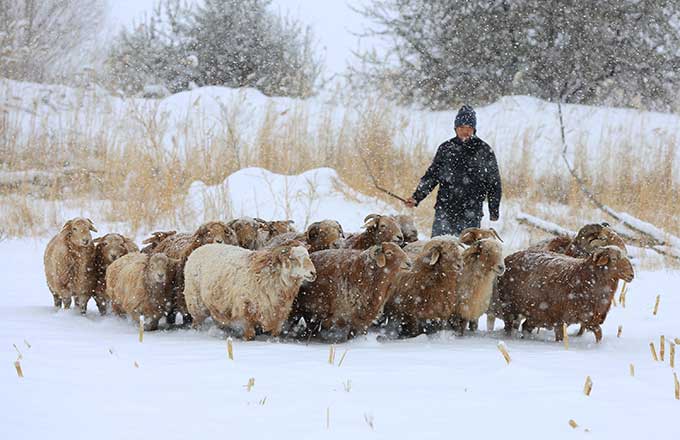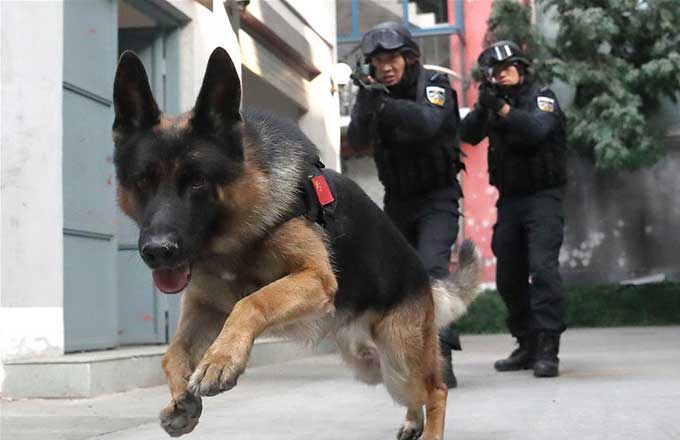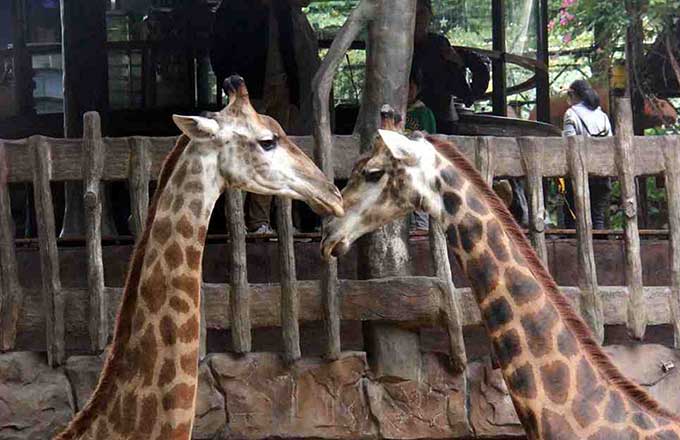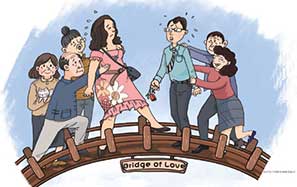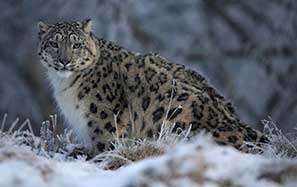Veteran astronaut soars to new heights
Jing Haipeng will become China's most experienced astronaut when he takes off aboard the Shenzhou XI spacecraft on Monday morning.
The monthlong mission to dock with the Taigong II space laboratory will mark the 49-year-old's third time in space, the most by any Chinese astronaut.
"Although the job is challenging, risky and dangerous, there is nothing else I'd rather do," Jing, who is the commander of the mission, told reporters at a news briefing on Sunday.
For this mission, "we have improved our ability to deal with emergencies, first aid and space experiments", he added.
He will be accompanied by Chen Dong, 37, who is taking part in his first mission.
Jing previously flew on Shenzhou VII in 2008 and Shenzhou IX in 2012. His new mission will take him past the only other Chinese astronaut who has gone into space more than once, Nie Haisheng, who traveled on Shenzhou VI in 2005 and Shenzhou X in 2013.
Both men, as well as Yang Liwei, China's first man in space, represent the first generation of Chinese astronauts, mostly born in the 1960s. They were officially recognized as astronauts in 1998.
However, like any industry, new blood is crucial to ensure progress, and in 2010 a second generation was chosen. Among them was Chen, who will be the first man from this group to make it into space.
"I used to watch Jing on television and he always seemed so far away. But when I met him in person, my worries and anxieties disappeared," Chen said. "We have similar experiences and share many interests.
"Now that we've been together for more than 10 hours a day, we can understand each other without uttering a word. He points a finger, I give a thumb, and we know exactly what to do."
Chen, from Henan province, is married and has twin sons. Jing has a son named Yufei, which translates as "flying into the universe", who was born in 1997.
"I will treasure every moment in space and ensure that I record my experience in my diary and enjoy the out-of-this-world scenery," Chen said.
The astronauts will conduct dozens of experiments on Taigong II, more than any previous mission, in part because of the unprecedented length of the assignment. Jing would not reveal the exact number, but he said tests would include scans of internal organs.
"I spoke with a doctor and he told me you need at least a year of training before you can conduct a B-scan on a patient," he said, referring to a technique in which structures of the body are visualized by recording echoes of ultrasonic waves directed into tissue. "We were trained for less than six months, and we're about to do it on our own bodies-with no gravity."
The resulting images and data will be sent back to headquarters for experts to analyze, he said, adding that the purpose is to see how the cardiovascular system is affected in a zero-gravity environment."
To blow off steam, 8 to 10 pm every day will be "happy hour" on the spacecraft, when Jing and Chen will be able to watch movies and listen to music. The two astronauts will also be able to make video calls home to their families.
Jing said he has stored dozens of gigabytes of music to take with him, although he preferred to keep his playlist secret.
Meet the crew
- Is it a thing? 10 odd jobs where you can make good money
- Message on a bottle: Mineral water company launches drive to find missing children
- Sun Yat-sen champion of national integrity, unity: Xi
- Four killed, two injured after house collapses in C China
- Cross-Straits forum held to commemorate Sun Yat-sen






